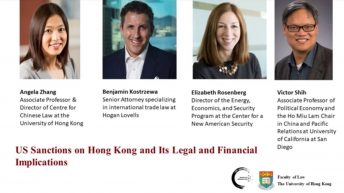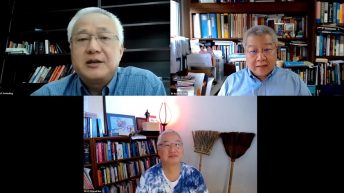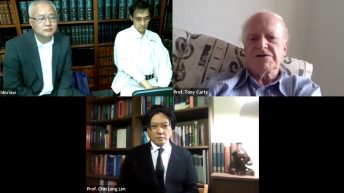Date: 03Nov 2021
After the arrival of the industrialization era, legal rules governing employment relations typically covered independent laborers, quasi laborers, and laborers. Subsequently, quasi laborers shrunk, independent laborers declined, while labor relations, in general, continued to grow. In the digital age, labor relations are increasingly weakening, and labor laws have fallen into a crisis of functionality and survival. In order to solve this problem, four different schemes have emerged, but they have produced chaos with respect to realizing labor law’s objective. To restore order, the legal method of type thinking should be introduced. The quasi-laborer itself is not a concept but a type.
Speaker:
Jianfeng Shen is a Doctor of Law, Professor at the Central University of Finance and Economics, graduate program tutor, Standing Director of the China Society of Social Law and Deputy Secretary-General of the Labor Law Branch, Member of the Law and Labor Relations Committee of the All-China Federation of Industry and Commerce, Director of the Beijing Labor and Social Security Law Society and Vice President of the Law Branch, and member of the Special Committee for the Healthy Development of the Private Economy of the Beijing Federation of Industry and Commerce Rule of Law Committee. From June 2009 to August 2010, he won the “Federal German Chancellor Scholarship” from the Humboldt Foundation and went to the University of Bonn in Germany for a study tour. In 2013, he was accepted into the Beijing Youth Talents Program. In recent years, more than 50 articles have been published in Chinese and German journals such as “Law Research”, “Sino-Foreign Law”, “Law”, among which 18 are CSSCI source journals, and 15 have been reprinted in full by NPC newspapers and periodicals. Professor Shen has published 2 monographs, has translated “German Labor Law” and 2 other books, and contributed to Foreign Labor Law”, “Labor Dispute Handling” and other works. He has presided over various projects carried out by the National Social Sciences Fund and the Humanities and Social Sciences Fund of the Ministry of Education, the Ministry of the Chinese Law Society, the Ministry of Human Resources and Social Security, and other empirical research projects. He has successively won the third prize of the Second Capital Outstanding Legal Achievement Award, the first prize of the Beijing Labor and Social Security Law Society Paper Evaluation, and the third and second prize of Excellent Youth Papers of the Chinese Society of Social Law. In recent years, he has been invited to give lectures on labor law, labor union law, and labor dispute handling by the human resources and social departments at all levels, labor unions, and courts.
Discussant:
Rongqing Ren, obtained her doctorate in law and is a postdoctoral fellow. She is the Director of Ali Local Life Legal Policy Research Center and is also the director of the Chinese Society of Behavioral Law, a researcher at the Real Estate Law and Bankruptcy Law Research Center at Nankai University, and a visiting postgraduate tutor at North China University of Technology.
Chair: Dr. Angela Zhang, Director of the Centre for Chinese Law at the University of Hong Kong To keep up with our activities, follow us on Twitter https://twitter.com/CCLHKU
The Centre for Chinese Law at the University of Hong Kong promotes legal scholarship with the aim to develop a deeper understanding of China and facilitate dialogue between East and West.




